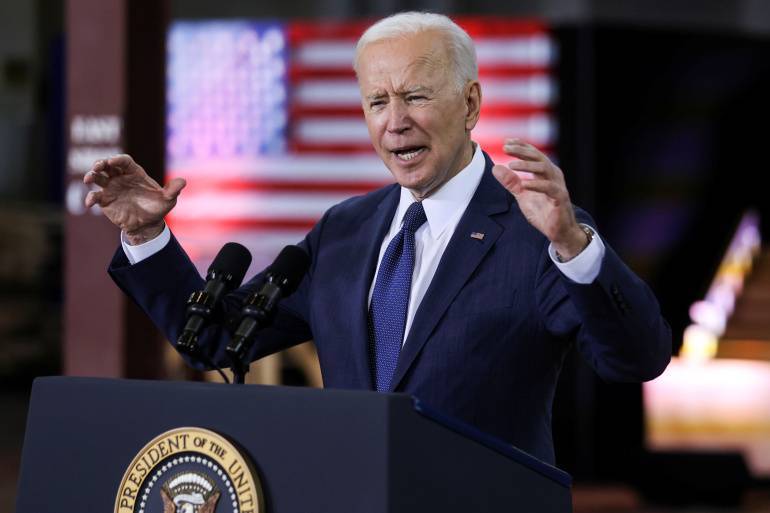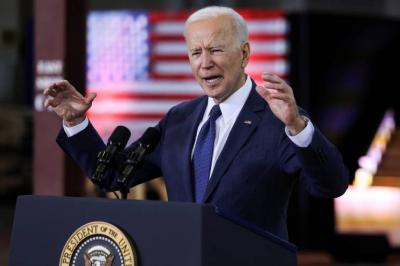President Joe Biden said on Thursday that he is urging a halt to violence between Israelis and Palestinians, but U.S. officials indicate they are bracing for the conflict to continue for several more days. Since taking office in January, Biden’s foreign policy efforts have been primarily focused on China, Russia, and Iran. The sharp escalation of violence between Israel and the Palestinian territories, along with the rising death toll, has compelled Biden to initiate a diplomatic effort aimed at restoring calm to the region.
Secretary of State Antony Blinken spoke by phone with Palestinian President Mahmoud Abbas on Wednesday, but U.S. officials stated that Abbas appears either unable or unwilling to rein in Hamas-led rocket attacks on Israeli targets. As a result, the Biden administration has engaged with several Arab nations in the region, urging them to leverage their influence over Hamas—which Washington classifies as a terrorist organization—to cease the violence.
The fundamental U.S. strategy is to stop the violence and restore what officials described as lasting calm, but even that seems to be a distant goal. Biden told reporters on Thursday that "there has not been an excessive reaction" from Israelis to the attacks. He added, "The question is how to reach a point where there is a significant reduction in the attacks, particularly the random rocket fire targeting populated areas. This is an ongoing effort at the moment."
An American official noted that U.S. officials are realistic about the possibility of continued violence if it does not escalate over the next couple of days. Amid calls for the United States to take greater action and for Biden to intervene more directly, it remains unclear how the president can persuade both sides in this long-running conflict, which he has followed for decades as a U.S. senator and then as vice president.
Biden sharply shifted U.S. policy upon taking office from Republican Donald Trump. He waited weeks before speaking with Israeli Prime Minister Benjamin Netanyahu for the first time, emphasizing the need for a two-state solution to the Israeli-Palestinian conflict. Trump was a strong supporter of Netanyahu and negotiated agreements to normalize relations between Israel and the UAE, Bahrain, Sudan, and Morocco.
Democrats criticized Trump for ignoring the Palestinians, and Biden's comments on the violence clearly indicated that Palestinians deserve freedom, peace, and prosperity just as Israelis do. The United States has faced isolation at the UN since it restrained any public intervention by the Security Council in efforts to end the violence between Israel and Palestinian militants, leading some diplomats to question Washington's strategy.
A senior Arab diplomat, who spoke on condition of anonymity, said it appears that Washington has "no clear strategy" on how to mediate a ceasefire, and "this is the real problem." Thus far, ceasefire efforts by Egypt, Qatar, and the UN have shown no signs of progress, and the United States will send an envoy to the region. The area is currently experiencing the worst violence in years following Israel's attack against militants in Gaza in response to Hamas launching rockets at Jerusalem and Tel Aviv due to clashes at Al-Aqsa Mosque during Ramadan.




